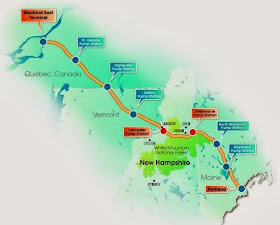1. “You already know enough. So do I. It is not knowledge we
lack. What is missing is the courage to understand what we know and to draw
conclusions.”—Sven Lindqvist
A friend invited me to speak to a
class she is teaching at a local college. The course is Climate Change and
Society and the students seem to be showing signs of despair after a semester
of carbon counting and policy statistics. I believe that climate science, too
often, cleaves a gulf between knowledge and action.
When we cavalierly drop the future
of the world on the shoulders of a new generation, we forget to offer tools for
building hope. We teach the science, the policy, the history of struggle, the
challenges. We talk about problems, and then step aside, relieved to have passed the torch, blink back our own
tears, and wait impatiently for their solutions to pour forth.
Collectively, we are taught and so teach that hope, that the
heart, the soul, the emotional core of all we are and all we are capable of are
not to be used as tools. We cut out our own hearts to try to save something we
love, we cover up our childish old “Save the Rainforest” posters with climate
spreadsheets and data sets and poll numbers, because Science and Reason, not
hope or love, are the only tools we’re taught to trust, the only truths we’re
taught to believe.
I am a hopeful realist. I have
learned the science, the procedure of politics, markets, and culture. And, yet,
I also know that there is too much active love on this world to give up hope
and succumb to despair. I choose hope, and in doing so, I find hope renewed and
rekindled with the beauty of the world.
2. “Despair is a black leather jacket in which everyone
looks good, while hope is a frilly pink dress few dare to wear.”—Rebecca Solnit
I wore a fluorescent pink dress to
the class. I own one, I had to. It looked like a costume, but the very
incongruity of it on a particularly gray Boston morning made me smile. I know
that there are other ways of being than to be chilly and coolly despairing.
Hope is emotional and extremely vulnerable—your heart is on your sleeve and the
world may break it—but it is also more joyful and more honest. This is a
revolution of how we re-build the world. I want a kinder, more joyful, more
honest world that is worthy of my hope and labors. To be hopeful is to remain a
light, burning in the darkness, so that others can find you, can come in from
the cold.
3. "We are all musicians in a great human orchestra,
and it is now time to play the Save the World Symphony. You are not required to
play a solo, but you are required to know what instrument you hold and play it
as well as you can. You are required to find your place in the score. What we
love we must protect. That’s what love means. From the right to know and the
duty to inquire flows the obligation to act."—Sandra Steingraber
Your instrument, I believe, is what
you love best. Your love of it, your fierce need to protect it, your joyful
renewal in its presence—this is your instrument, the light you carry that will
burn in the darkness, that will lead you to the Symphony and lead anyone who
sees you out of their own darkness, to their instrument, and to their place in
the Symphony as well.
And, you are never alone. In your
solos, others are watching you, resting as you play, and waiting for their
turn. If you are impatiently waiting your turn, if you feel your moment has
come to burst above and be heard, then it is time, and we will all play along
as best we can. Take rests, take solos, take comfort in being not alone in this beautiful thing. None of us know the music and there is no conductor, by the way—we are here for the joy
of playing together and figuring it out and making something beautiful
together.
Be kind to yourself, your
instrument, and the Symphony, both the larger whole and the people in your section.
4. “Even though you blame the government, you really should
also blame yourselves. You need to do something about your situation. Do
whatever is within your power.”—Wangari Maathai
What is within your power? The
choices you make in what you want and need out of life, what the priorities are
for your time, where you find solace, reward, challenge, and joy, these—in
large measure—supercede any true power that anyone else has to determine your
situation.
5. “I get up every morning determined to both change the
world and have one hell of a good time. Sometimes this makes planning my day
difficult.”—E.B. White
What
is the point of saving this world if we’re not able to enjoy it?
Take time to live
as if the fight were already won and the world was as you wish it to be.
6. “The farm is for Sophie, the fight is for Sophie, and
this book is for Sophie.”—Bill McKibben
What, who, where, why are you
fighting and working and hoping for?
To know this, I believe, is to know
the wellspring of your hope, the shape of your instrument case, where your
power lies, your pink dress waits, and what will renew you again and again.
We are fighting for love, and in the emotion's very unquantifiablity lies the courage to turn knowledge to understanding to action, to turn despair to hope.





